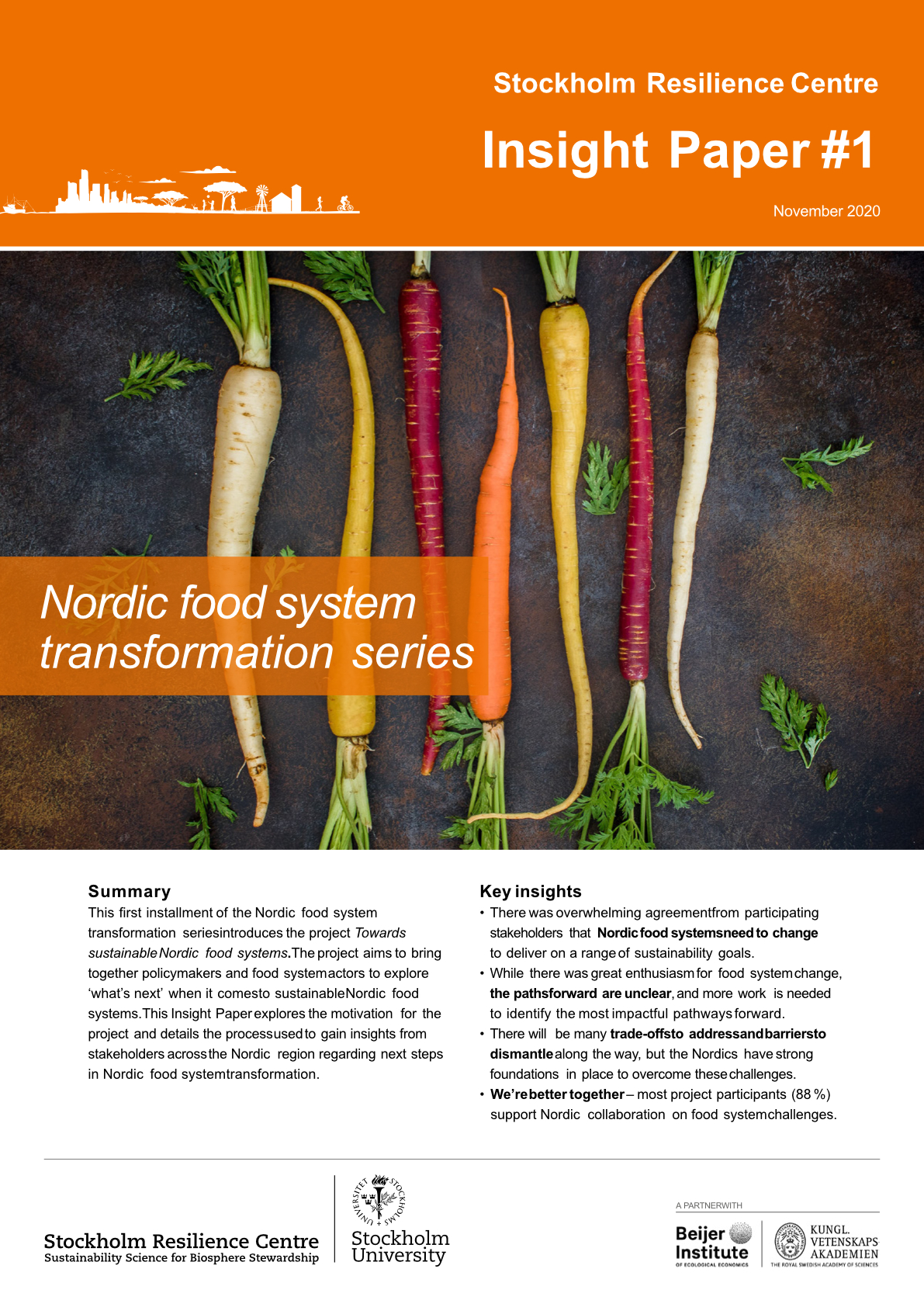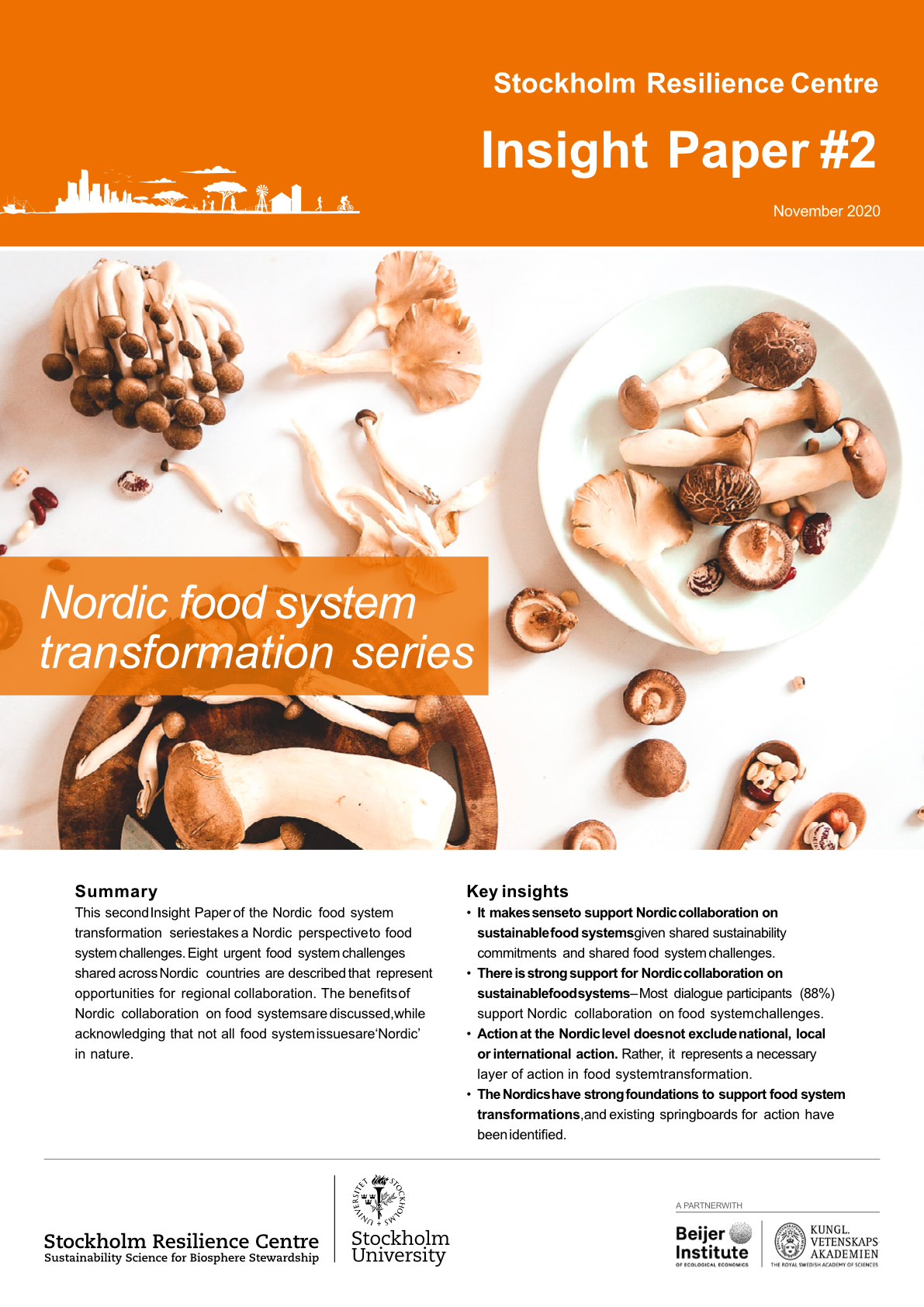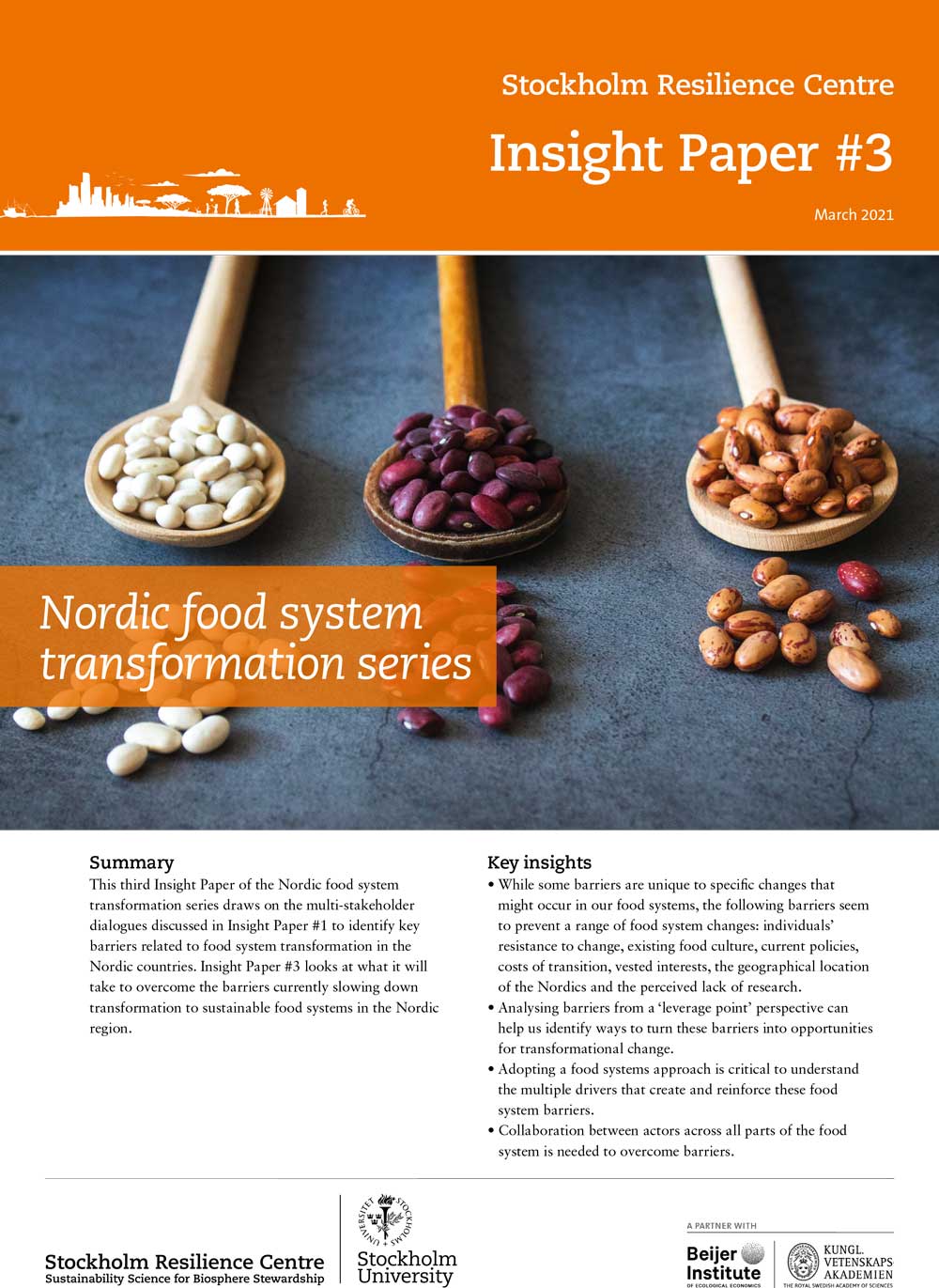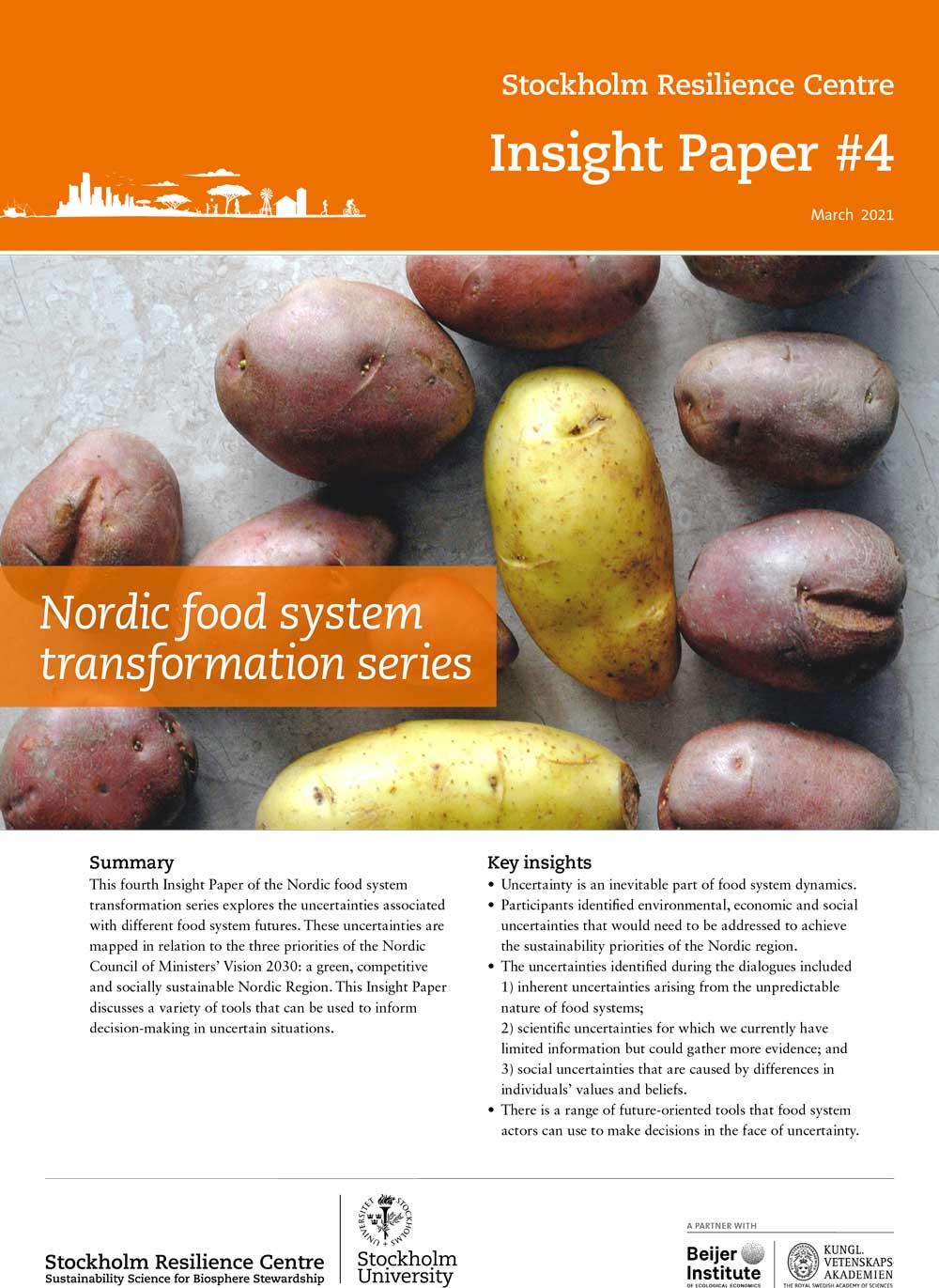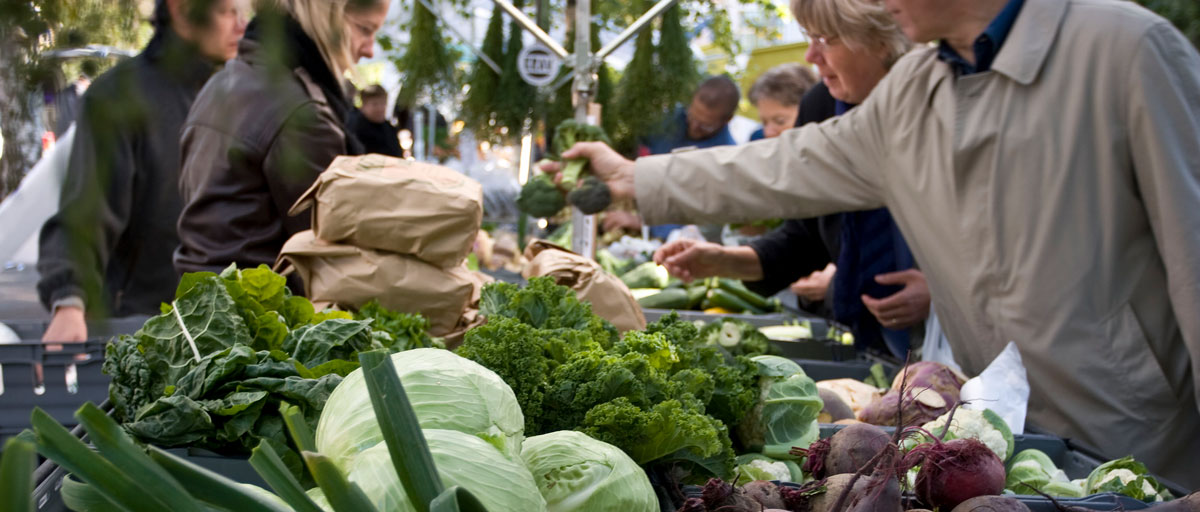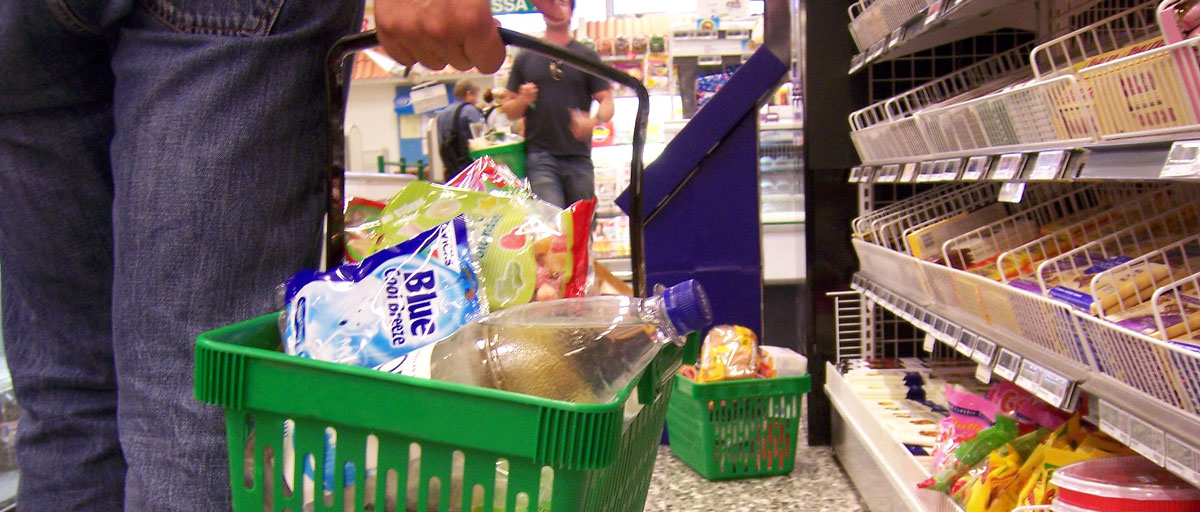Bildtext får vara max två rader text. Hela texten ska högerjusteras om den bara ska innehålla fotobyline! Photo: B. Christensen/Azote
SUSTAINABLE FOOD SYSTEMS
Nordic countries are well suited to collaborate on food systems transformation
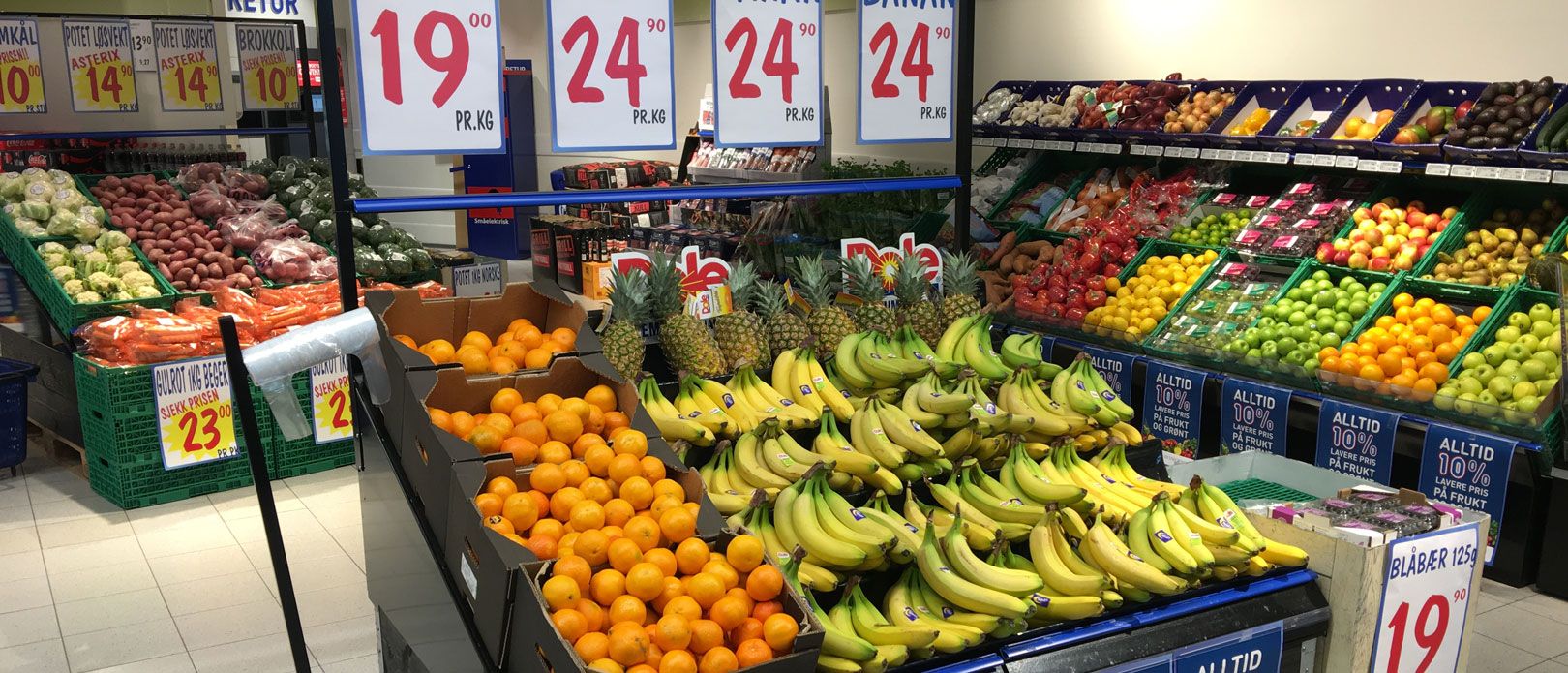
Although there may yet be a blueprint for action towards sustainable food systems, but there is broad support for both food system transformation and Nordic collaboration to tackle food system challenges. This is the conclusion from a project exploring strategies to promote sustainable Nordic food systems. Photo: Wolfmann/Wikimedia Commons
- The project Towards sustainable Nordic food systems explored what is next in developing and implementing strategies to promote sustainable Nordic food systems
- This was done through a series of dialogues between researchers and food system actors in the Nordic countries
- The project identified eight entry points for Nordic collaboration and proposed ways that we can work together
While hurdles remain, the region can build on the shared history of collaboration to tackle food system challenges together, new insight papers show
WHAT’S NEXT FOR THE NORDICS? The first step towards change is to acknowledge that things need to change.
When it comes to pushing food production and consumption into a more sustainable trajectory, many stakeholders across Norway, Sweden, Finland, Iceland and Denmark agree that it makes sense to work together.
A project entitled Towards sustainable Nordic food systems set out to explore what is next in developing and implementing strategies to promote sustainable Nordic food systems.
This was done through a series of dialogues between researchers and food system actors in the five countries.
Each dialogue invited policymakers, business representatives, civil society, researchers, producer organisations, consumer representatives, funders, and youth organisations to jointly discuss potential food system shifts.
In total, 115 individuals participated across all Nordic dialogues.
The dialogues were facilitated by Afton Halloran, a Denmark based consultant in sustainable food systems. Centre director Line Gordon was the lead investigator. The project was managed by centre researcher Amanda Wood.
We may not have a blueprint for action towards sustainable food systems, but there is broad support for both food system transformation and Nordic collaboration to tackle food system challenges.
Amanda Wood, project manager
Watch Amanda Wood explain the key insights from the project:
Three key insights
Insights from the project can be summarized in three points:
- Nearly 90% of dialogue participants agreed that Nordic food systems need to change if their country is to reach its sustainability goals
- But the path forward is unclear and contested. Half of the participants felt that the pathways towards sustainable food systems were uncertain
- Yet 88% of participants felt that it was best that the Nordics worked together to tackle shared food system challenges
And where do we start?
The project identified eight entry points for Nordic collaboration Pdf, 2 MB. and proposed ways that we can work together to overcome barriers/bumps in the road.
Pdf, 2 MB. and proposed ways that we can work together to overcome barriers/bumps in the road.
More details on the insights
Four insight papers will be published on the back of the dialogues, explaining in more detail the findings from the project.
- Insight paper #1
 Pdf, 2.4 MB. provides an overview of the project ‘Towards sustainable Nordic food systems’.
Pdf, 2.4 MB. provides an overview of the project ‘Towards sustainable Nordic food systems’. - Insight paper #2
 Pdf, 4 MB., identifies eight entry points for action. It also highlights existing springboards for action on Nordic food system transformation, underscoring that the Nordics aren’t starting from scratch.
Pdf, 4 MB., identifies eight entry points for action. It also highlights existing springboards for action on Nordic food system transformation, underscoring that the Nordics aren’t starting from scratch. - Insight Paper #3
 Pdf, 2.7 MB. identify barriers to food system transformation and propose ways to overcome these barriers
Pdf, 2.7 MB. identify barriers to food system transformation and propose ways to overcome these barriers - Insight Paper #4
 Pdf, 2.9 MB. explores the uncertainties associated with different food system futures.
Pdf, 2.9 MB. explores the uncertainties associated with different food system futures.
The project was funded by the Nordic Council of Ministers and the Marianne and Marcus Wallenberg Foundation.
Podcast: The role of food in the pandemic: food security, shocks and transformations
